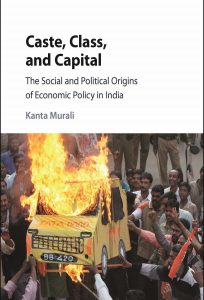
Caste, Class, and Capital – The Social and Political Origins of Economic Policy in India
For millions of poor people in the developing world, economic growth offers prospects for improved well-being. But what are the political and social conditions conducive to growth-oriented policies in poor democracies? This book addresses this highly consequential question by focusing on a specific empirical puzzle – policy variation across Indian states in the competition for private industrial investment, a phenomenon that came to the fore after the country adopted market reforms in 1991. Through the analysis of investment policies, this book offers a novel explanation, which links social identity, class, and economic policy outcomes. Its main findings highlight a link between pro-business policies and exclusionary political trends in India’s high growth phase, and offer a sobering perspective on the current model of growth in the country. It adds to our understanding of Indian political economy as well as to the dynamics of economic development in poor democracies.

Dynasties and Interludes: Past and Present in Canadian Electoral Politics
Dynasties and Interludes provides a comprehensive and unique overview of elections and voting in Canada from Confederation to the recent spate of minority governments. Its principal argument is that the Canadian political landscape has consisted of long periods of hegemony of a single party and/or leader (dynasties), punctuated by short, sharp disruptions brought about by the sudden rise of new parties, leaders, or social movements (interludes). Changes in the composition of the electorate and in the technology and professionalization of election campaigns are also examined in this book, both to provide a better understanding of key turning points in Canadian history and a deeper interpretation of present-day electoral politics.
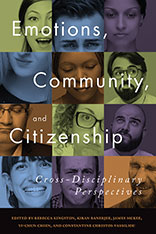
Emotions, Community and Citizenship: Cross-Disciplinary Perspectives
Emotions are at the very heart of individual and communal actions. They influence our social and interpersonal behaviour and affect our perspectives on culture, history, politics, and morality. Emotions, Community, and Citizenship is a pioneering work that brings together scholars from an array of disciplines in order to challenge and unite the disciplinary divides in the study of emotions. These carefully selected studies highlight how emotions are studied within various disciplines with particular attention to the divide between naturalistic and interpretive approaches. The editors of this volume have provided a nuanced and insightful introduction and conclusion which provide not only an overarching commentary but a framework for the interdisciplinary approach to emotion studies.

The Death and Life of the Urban Commonwealth
The city is a paradoxical space, in theory belonging to everyone, in practice inaccessible to people who cannot afford the high price of urban real estate. Why should access to public and social goods be tied to the ability to acquire private property? When people lose access to the urban commons, they are dispossessed of something to which they have a rightful claim. What kind of right is the right to the city? Political theory has much to say about individual rights, equality, and redistribution, but has largely ignored the city. In order to fill this lacuna, this book draws on a largely forgotten political theory called solidarism. Solidarism’s justification of social rights is particularly relevant to conflicts about urban space. The book uses solidarism to interpret the city as a form of common-wealth, a concentration of value created by past generations and current residents. This approach helps us rethink struggles over gentrification, public housing, transit, and public space.
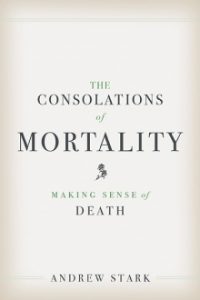
The Consolations of Mortality – Making Sense of Death
For those who don’t believe in an afterlife, the wisdom of the ages offers four great consolations for mortality: that death is benign and good; that mortal life provides its own kind of immortality; that true immortality would be awful; and that we experience the kinds of losses in life that we will eventually face in death. Can any of these consolations honestly reconcile us to our inevitable demise?
In this timely book, Andrew Stark tests the psychological truth of these consolations and searches our collective literary, philosophical, and cultural traditions for answers to the question of how we, in the twenty-first century, might accept our mortal condition. Ranging from Epicurus and Heidegger to bucket lists, the flaming out of rock stars, and the retiring of sports jerseys, Stark’s poignant and learned exploration shows how these consolations, taken together, reveal death as a blessing no matter how much we may love life.

The Making of Grand Paris – Metropolitan Urbanism in the Twenty-First Century
In 2007 the French government announced the “Grand Paris” initiative. This ambitious project reimagined the Paris region as integrated, balanced, global, sustainable, and prosperous. Metropolitan solidarity would unite divided populations; a new transportation system, the Grand Paris Express, would connect the affluent city proper with the low-income suburbs; streamlined institutions would replace fragmented governance structures. Grand Paris is more than a redevelopment plan; it is a new paradigm for urbanism. In this first English-language examination of Grand Paris, Theresa Enright offers a critical analysis of the early stages of the project, considering whether it can achieve its twin goals of economic competitiveness and equality.
Enright argues that by orienting the city around growth and marketization, Grand Paris reproduces the social and spatial hierarchies it sets out to address. For example, large expenditures for the Grand Paris Express are made not for the public good but to increase the attractiveness of the region to private investors, setting off a real estate boom, encouraging gentrification, and leaving many residents still unable to get from here to there.
Enright describes Grand Paris as an example of what she calls “grand urbanism,” large-scale planning that relies on infrastructural megaprojects to reconfigure urban regions in pursuit of speculative redevelopment. Democracy and equality suffer under processes of grand urbanism. Given the logic of commodification on which Grand Paris is based, these are likely to suffer as the project moves forward.
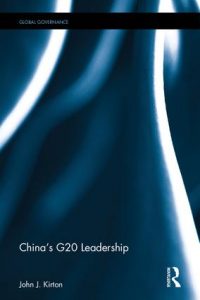
China’s G20 Leadership
Kirton offers a comprehensive, systematic examination of China’s G20 approach, diplomacy and influence since the G20’s start as a forum for finance ministers and central bankers in 1999. This comprehensive reference tool works its way through China’s elevation to the leaders’ level with summits from 2008-2014, to the prospects for its Antalya Summit in November 2014 and above all China’s first summit as host in Hangzhou in the autumn of 2016. This book contains a full treatment of China’s role in the summits from 2011 to 2014, and China’s plans, role and prospects for the summits in 2015 and 2016. Analytically, it develops and tests at the level of a single member country the systemic hub model of G20 governance that was developed for and guided in Kirton’s 2013 book, G20 Governance for a Globalized World.
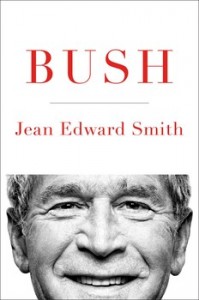
Bush
Distinguished presidential biographer Jean Edward Smith offers a critical yet fair biography of George W. Bush, showing how he ignored his advisors to make key decisions himself—most disastrously in invading Iraq—and how these decisions were often driven by the President’s deep religious faith.
George W. Bush, the forty-third president of the United States, almost singlehandedly decided to invade Iraq. It was possibly the worst foreign-policy decision ever made by a president. The consequences dominated the Bush Administration and still haunt us today.
In Bush, “America’s greatest living biographer” (George Will), Jean Edward Smith, demonstrates that it was not Dick Cheney, Donald Rumsfeld, or Condoleezza Rice, but President Bush himself who took personal control of foreign policy. Bush drew on his deep religious conviction that important foreign-policy decisions were simply a matter of good versus evil. Domestically, he overreacted to 9/11 and endangered Americans’ civil liberties.
Smith explains that it wasn’t until the financial crisis of 2008 that Bush finally accepted expert advice, something that the “Decider,” as Bush called himself, had previously been unwilling to do. As a result, he authorized decisions that saved the economy from possible collapse, even though some of those decisions violated Bush’s own political philosophy.
Bush is a comprehensive evaluation of the Bush presidency—including Guantanamo, Katrina, No Child Left Behind, and other important topics—that will surely surprise many readers. Controversial, incisive, and compelling, it is thoroughly researched and sure to add to the debate over Bush’s presidential legacy.
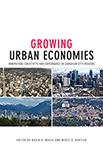
Growing Urban Economies: Innovation, Creativity, and Governance in Canadian City Regions
Even in a globalizing, knowledge-based economy, cities remain engines of growth, innovation, and diversity. Increasingly, they are also active participants in the creation of the social and political conditions necessary to create a thriving community. The Innovation, Creativity, and Governance in Canadian City-Regions series is a focused analysis of how developments at the local and regional level affect these three key determinants of future prosperity. Growing Urban Economies summarizes its conclusions in a single volume that presents an overview of the evidence and its implications.
A rich and nuanced analysis of the interplay of social, political, and economic factors in thirteen Canadian city-regions, large and small, this collection integrates research focusing on innovation, creativity and talent-retention, and governance in order to understand the distinctive experience of each region. A valuable cross-section of city-region development in a variety of circumstances, Growing Urban Economies offers important insights into the way in which local conditions affect urban economies around the world.

The Judicial Role in A Diverse Federation: Lessons from the Supreme Court of Canada
In The Judicial Role in a Diverse Federation, Robert Schertzer uses the example of the Supreme Court of Canada to examine how apex courts manage diversity and conflict in federal states.
Schertzer argues that in a diverse federation where the nature of the federal system is contested the courts should facilitate negotiation between conflicting parties, rather than impose their own vision of the federal system. Drawing on a comprehensive review of the Supreme Court federalism jurisprudence between 1980 and 2010, he demonstrates that the court has increasingly adopted this approach of facilitating negotiation by acknowledging the legitimacy of different understandings of the Canadian federation.
This book will be required reading both for those interested in Canada’s Supreme Court and for those engaged in broader debates about the use of federalism in multinational states.